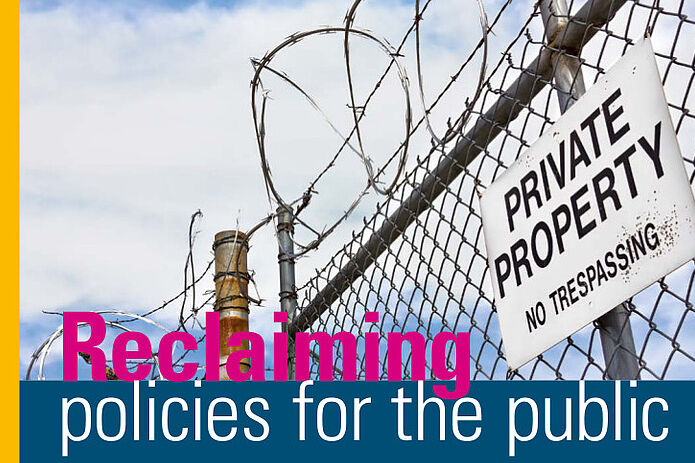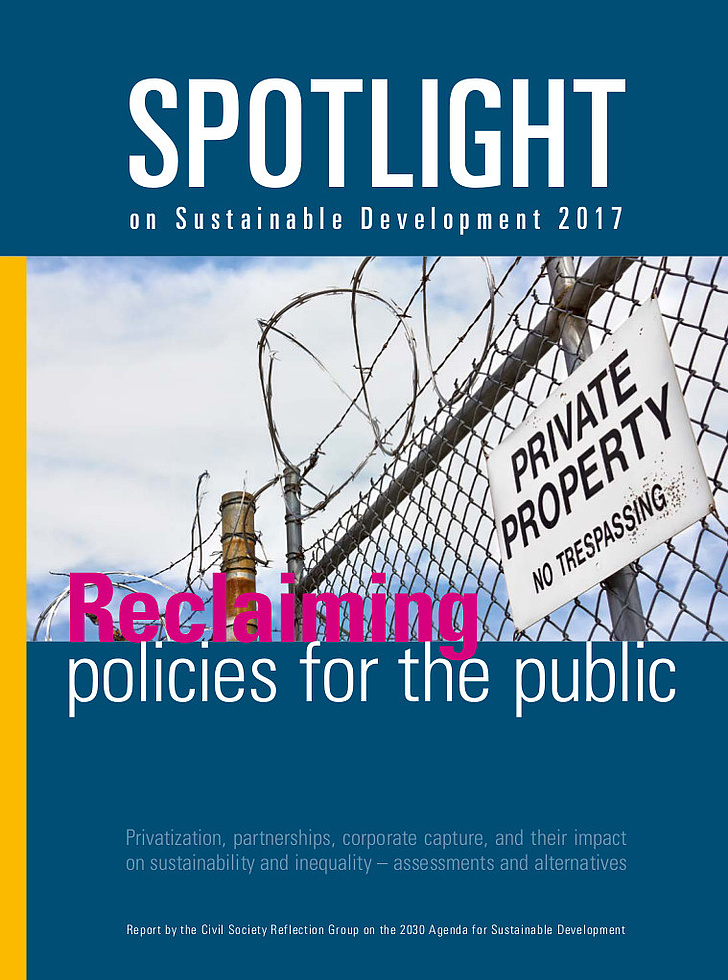July: global governance and social democracy
For some of the rural poor in countries of the Global South, innovation and private-public partnerships have improved access to financial services, like mobile money payments and transfers (link in English). In many of these countries, however, state revenues remain very low leaving countries unable to finance policies which could guarantee their citizens’ access to rights and services.
While private-public partnerships may have brought benefits, as in the example with financial inclusion, they also “involve disproportionate risks and costs for people and the public purse.” This claim (<link popular-posts detail corporations-divert-un-agenda-claims-civil-society-report external-link>link in English), part of the Spotlight Report 2017 on the implementation of the Agenda 2030 that was published in July by a global coalition of civil society organizations and trade unions, complements a critique directed at the 20 Africa Partnership, a central project of Germany’s G-20 presidency for 2016-2017. Missing in the vision for Africa by the exclusive forum of 20 among the world richest countries “is a comprehensive strategy that tackles the low-level performance of public utilities” (<link reading-picks the-g20-compact-with-africa-is-unsuitable-for-african-low-income-countries external-link>link in English).
In many of the African countries that struggle with resources and state revenues for public utilities, an ambience of excessive bureaucracy and corruption has benefited primarily large and/or foreign companies. In global terms, it is precisely tax evasion and tax avoidance perpetrated by multinationals through tax havens that have deprived countries of the South 100 billion US dollars a year (<link people the-group-of-77-and-the-fight-against-tax-havens external-link>link in English), a central motivation behind the agenda for international tax justice: the need to increase countries’ revenues in a fairer way and achieve economic independence.
In the July issue of FES Connect, we bring you thoughts and proposals from the international network by FES for socially just policies of good global governance as progressive response to influential and exclusive fora such as the G-20.
For colleagues, partners and friends the battlegrounds remain injustice and inequality and their contributions on just taxation, migration, peace, inclusive development and balanced cooperation put forward clear policy actions for multilateral responses to problems in the days after protests subside.
Read on, engage and follow us on Twitter!
Your FES Connect Editorial Team
About FES Connect
Connecting people, in the spirit of social democracy, we source and share content in English from the German and international network of the Friedrich-Ebert-Stiftung.















